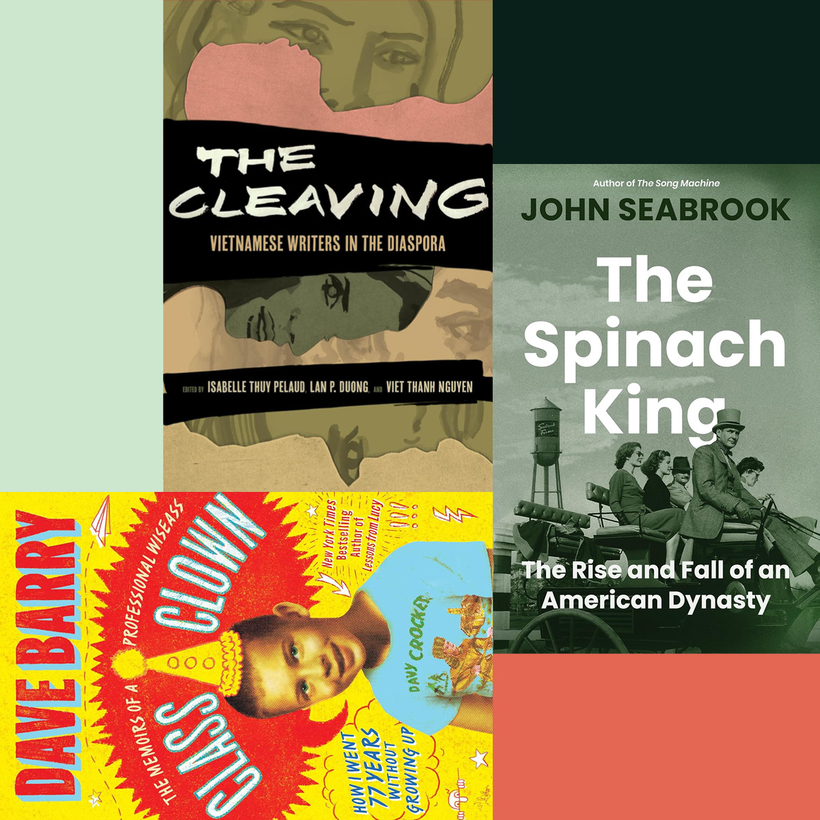Lan P. Duong, and Viet Thanh Nguyen
It has been 50 years since the war ended in Vietnam, yet for decades afterward Vietnamese writers have rarely been published in the English language. The Cleaving is remarkable in making amends, featuring three dozen writers, poets, and artists in the Vietnamese diaspora in paired dialogues. The result is an affecting kaleidoscope of perspectives and feelings that tears away the Western image of the country, seen “too often as a country of war, at times a leftist revolutionary fantasy, and now a viable site for capitalistic investment.” The conversations range from why Americans do not like to discuss the war to the difficulties of finding an agent, to the challenges of writing stories that do not fit a certain preconception. Or as the novelist and poet Amy Quan Barry put it, “You can’t write about Vietnam unless you include a water buffalo somewhere.”
Viet Thanh Nguyen is the most famous of them all, thanks to winning the Pulitzer Prize in fiction for The Sympathizer, and his foreword eloquently explores the problems faced by those who, no matter how well they write, may still hear comments such as “Your English is so good!” His goal for the book is to show that there is “narrative plenitude” in Vietnamese voices, and it is a goal fully achieved in The Cleaving with both insight and wit.

